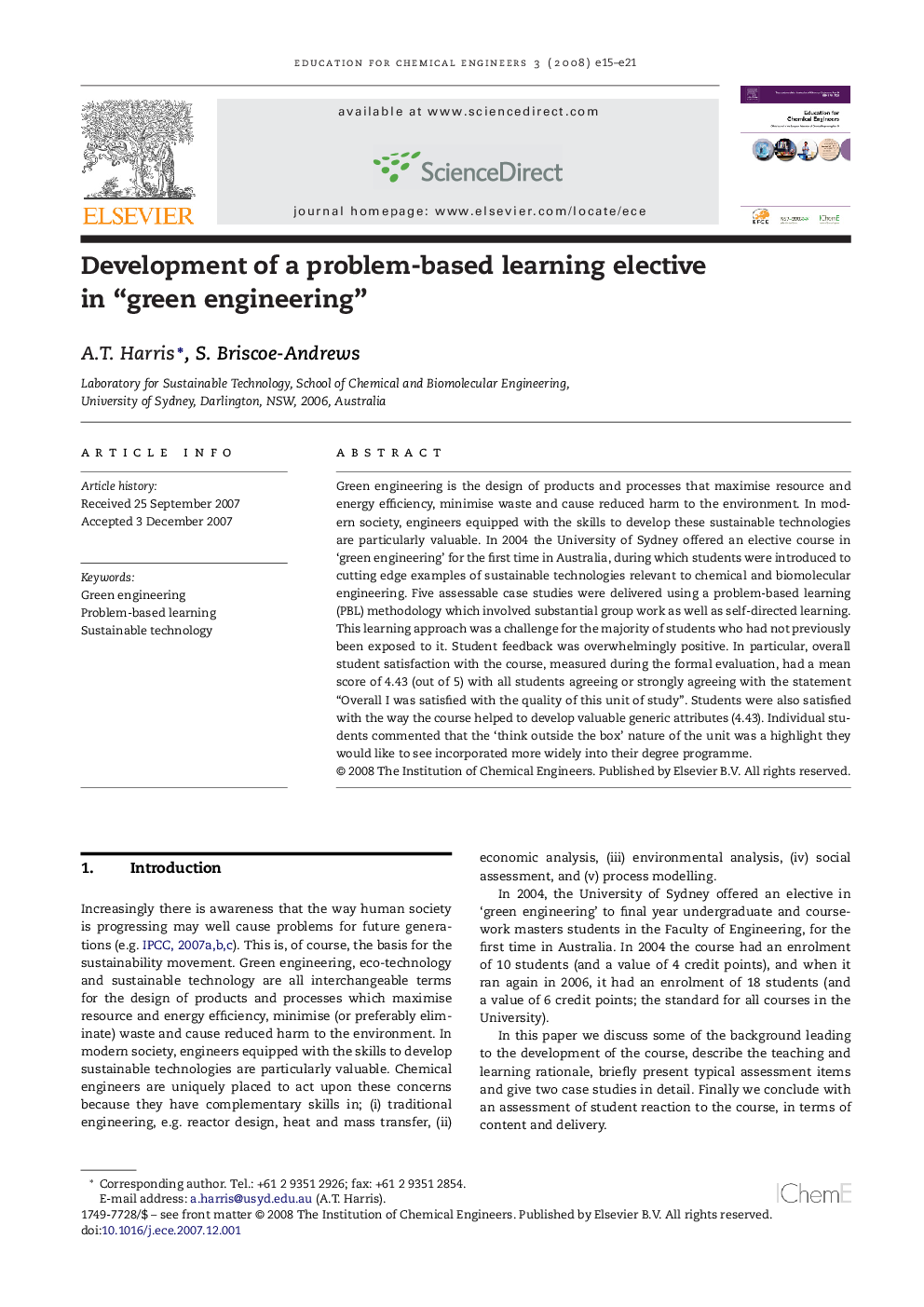| Article ID | Journal | Published Year | Pages | File Type |
|---|---|---|---|---|
| 178578 | Education for Chemical Engineers | 2008 | 7 Pages |
Green engineering is the design of products and processes that maximise resource and energy efficiency, minimise waste and cause reduced harm to the environment. In modern society, engineers equipped with the skills to develop these sustainable technologies are particularly valuable. In 2004 the University of Sydney offered an elective course in ‘green engineering’ for the first time in Australia, during which students were introduced to cutting edge examples of sustainable technologies relevant to chemical and biomolecular engineering. Five assessable case studies were delivered using a problem-based learning (PBL) methodology which involved substantial group work as well as self-directed learning. This learning approach was a challenge for the majority of students who had not previously been exposed to it. Student feedback was overwhelmingly positive. In particular, overall student satisfaction with the course, measured during the formal evaluation, had a mean score of 4.43 (out of 5) with all students agreeing or strongly agreeing with the statement “Overall I was satisfied with the quality of this unit of study”. Students were also satisfied with the way the course helped to develop valuable generic attributes (4.43). Individual students commented that the ‘think outside the box’ nature of the unit was a highlight they would like to see incorporated more widely into their degree programme.
